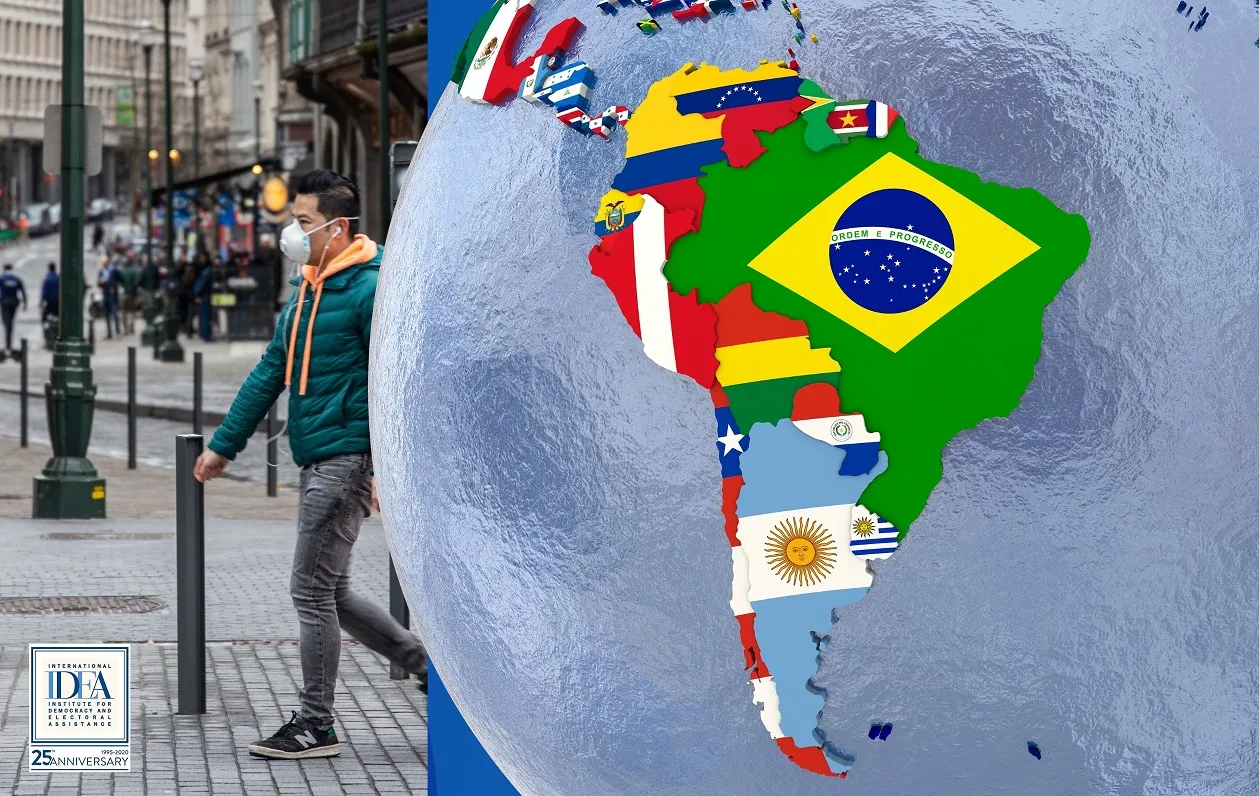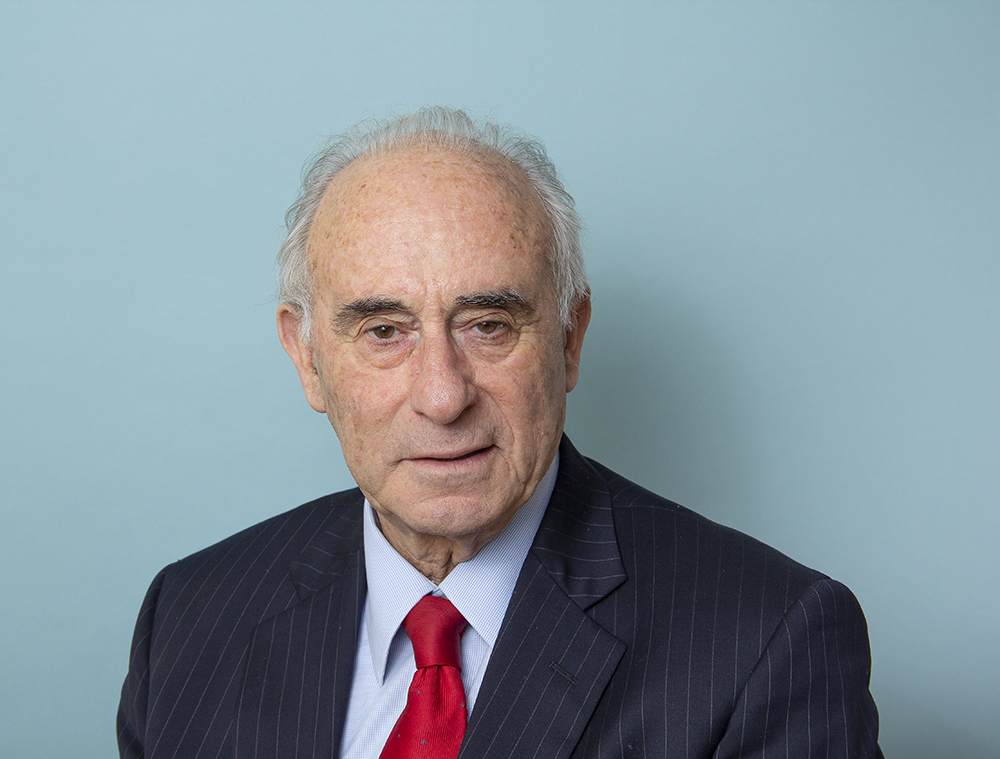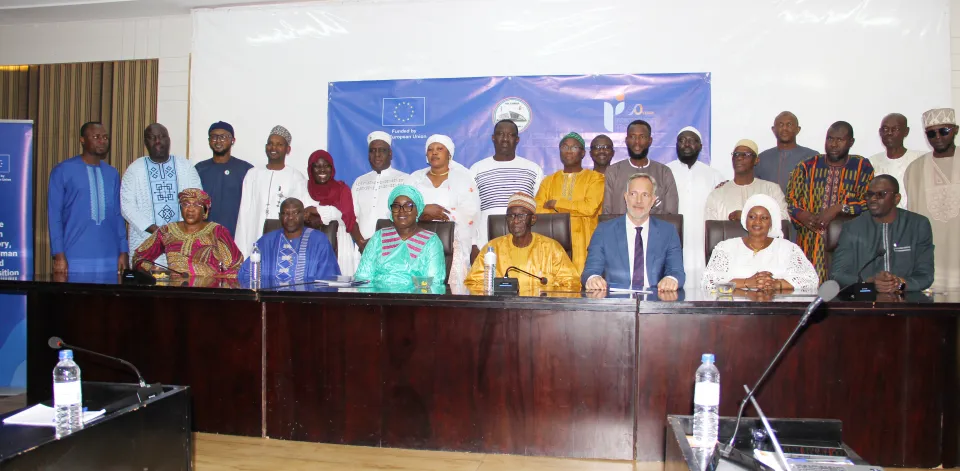Latin America: six months into the pandemic

The 15th of September marked the International Day of Democracy. To date, there is agreement that the pandemic is not only the worst health, socio-economic, and humanitarian crisis ever seen in Latin America; it is accompanied by a serious challenge to governance. The current moment is particularly apt for taking the region’s pulse as regards the effects of the coronavirus on democracy in Latin America.
Disclaimer: Views expressed in this commentary are those of the staff member. This commentary is independent of specific national or political interests. Views expressed do not necessarily represent the institutional position of International IDEA, its Board of Advisers or its Council of Member States.
A dramatic situation
More than 30 million persons have been infected and one million have died, according to data from Johns Hopkins University updated to 21 September. Our hemisphere has become the world epicenter of the pandemic, with two principal foci, the United States and Brazil. At this time, we are the region with the largest number of persons infected (almost 9 million) and the largest number of fatalities (more than 324,000). With only 8 per cent of the world’s population we account for 28 per cent of all infections and 34 per cent of the Covid-19 deaths worldwide.
The economic consequences are also dramatic. The IMF projects a contraction of GDP on the order of 9.4 per cen—more than any other region except Western Europe—and it anticipates that the recovery will be prolonged.
In the area of social development, poverty is expected to rise sharply (45 million new poor), along with inequality, massive job destruction (44 million unemployed), and significant growth of the informal sector.
Democracy under pressure
The effects of the pandemic on politics and elections are equally worrisome. Most of the countries introduced extraordinary measures (states of emergency, states of exception, etc.) to protect the population. in several cases these measures were applied without the necessary guarantees, increasing the power of the executive, and weakening the necessary checks and balances exercised by the legislative and judicial branches. In other cases we observe a weakening of the rule of law and oversight bodies. Among other negative effects have been acts of corruption associated with the pandemic.
Some countries show greater polarization, a deterioration in the human rights situation, unlawful restrictions on the freedom of expression, repression, illegal attacks on political adversaries, and a reduction of the spaces for civil society. Another worrisome tendency is the growing and unlawful use of the armed forces to maintain public order.
We have observed how some countries evolve toward hybrid regimes including Bolivia, El Salvador, Haiti, Honduras, and Guatemala. And in Cuba, Nicaragua and Venezuela, the authorities took advantage of COVID-19 to further authoritarianism and repression.
The pandemic has also had a disruptive impact on the electoral agenda in the region. Elections that were to be held in the second quarter of 2020 were rescheduled for the second half of this year or for 2021. Last July, the Dominican Republic was the first country in Latin America to hold general elections in the context of the pandemic.
As a new election super-cycle is about to begin in the region the challenge includes holding elections in contexts marked by the pandemic, ensuring the compatibility of the right to health with the full exercise of political rights and electoral integrity.
New regional consensus
Without ignoring the seriousness of the current moment, this crisis highlights the urgent need for reforms and therefore may give rise to a new regional consensus. The priority objectives for supporters of democracy should be: (1) adopting a new social contract that places the focus on reducing inequality, guarantees quality education and health, fosters the creation of formal-sector employment, and sets in motion a system for social protection; (2) recovering growth based on the diversification of production and exports, shored up by responsible macroeconomic management placing priority on technology, innovation, and entrepreneurship, progressive tax systems, and a head-on struggle against corruption and tax evasion; (3) endowing the state with competencies and resources to carry out its strategic role effectively, transparently, and accountably; (4) moving towards a new model of development taking guidance from the United Nation’s 2030 Agenda and mindful of climate change; (5) strengthening regional integration and coordination; and (6) moving towards an inclusive, resilient, and better-quality democracy.
The challenge is twofold: to keep democracy from falling victim to the pandemic, and to capitalize on the opportunity to accelerate institutional political innovation with the objective of strengthening the governance of the complex societies of the 21st century.
This is the agenda that the region urgently needs. There’s no time to lose.





